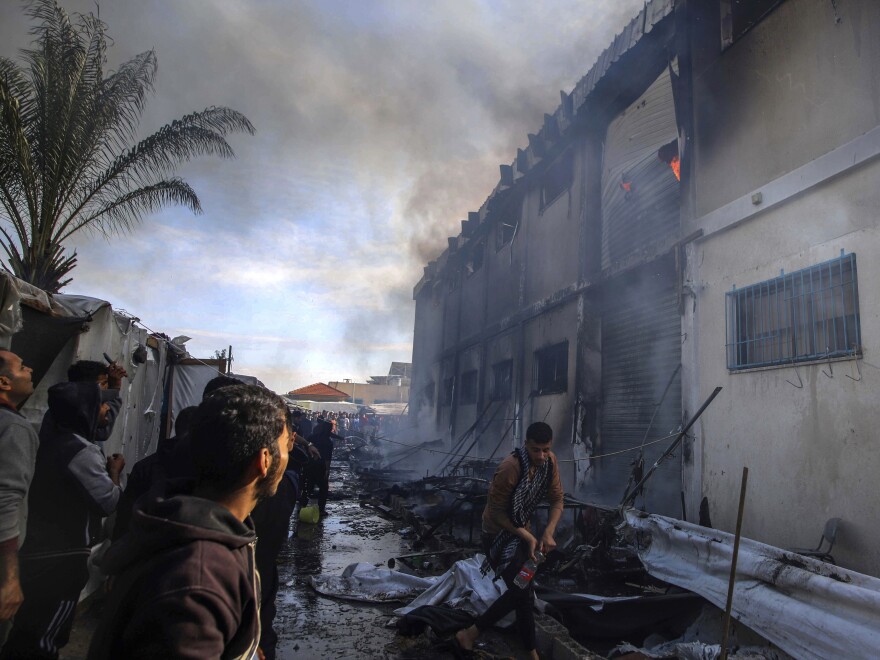RAFAH, the Gaza Strip — People injured at a United Nations facility in the Gaza city of Khan Younis that was hit by shells earlier this week are recounting harrowing stories of the attack.
The U.N. said 13 people were killed and 56 injured in the strike. The building, which is part of a training complex run by the U.N. agency for Palestinian refugees, also known as UNRWA, was sheltering 800 people.
Nahed Tanteesh, who was displaced to the center three months ago, said he was struck under his left eye with a piece of shrapnel. He said he was on the floor playing with his 4-month-old grandchild after morning prayers when he was surprised with shooting pain.
"It felt like my head burst with a pipe and I was bleeding from the nose," he said.
Tanteesh was evacuated to a medical facility in Rafah after leaving through a safe corridor from the center.
The Israeli military said in a statement that the attack was not from an Israeli aerial or artillery strike, and that they were examining whether it could have come from Hamas.
Israeli troops said on Tuesday that they had encircled Khan Younis and were battling some of Hamas' toughest fighters.
Nahed Tanteesh's son, Abdullah, said they were asleep early in the morning when they were awoken suddenly by loud booms and shooting.
"For six or seven hours there was shooting and explosions, it was unbelievable," he told NPR. "We were under fire for four days, praying the entire time, lying on the ground."
Abdullah Tanteesh said that he carried his bleeding father while running around the center to look for help. He eventually brought his father to the center's administration office.
"There was a person in charge of security there, with U.N. armor, and we begged, please help us!" he said. "But they told us, 'We are just like you, we are trapped like you and can't go anywhere.'"
He said he was able to finally leave the facility to find help through what he called a so-called safety corridor.
Abdullah Tanteesh also said that he has witnessed the funeral of at least 10 people.
"I saw a woman with her head cut off, and another with insides exposed," he said. "They took the bodies to a warehouse in the center, wrapped them in blankets, we prayed, and they just dug up a hole in the ground and put them all in there together."
Thomas White, the director of the UNRWA's mission in Gaza, said in a statement on Wednesday that the deteriorating safety conditions in Khan Younis are the result of a consistent failure of international humanitarian law, and called for the hostilities to stop.
Copyright 2024 NPR. To see more, visit https://www.npr.org.








